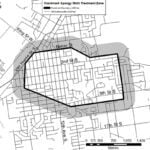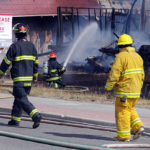Home »

Columbia Valley Food Bank plans for its future
 The shelves are stocked with tins of coffee, jars of jam and snack bags for kids. There’s milk, yogurt and eggs in the fridge, and fish in the freezer. There’s even a gluten-free selection.
The shelves are stocked with tins of coffee, jars of jam and snack bags for kids. There’s milk, yogurt and eggs in the fridge, and fish in the freezer. There’s even a gluten-free selection.
Based in Invermere, the Columbia Valley Food Bank distributes a wide range of healthy food to people in the Columbia Valley, from Spillimacheen to Canal Flats. And now the organization is even better poised to continue doing so successfully.
“Our organization has grown exponentially in the past few years,” said Nesta Becker, Food Bank Chair.
Several factors have boosted use, including a more visible new location for the food bank, the lack of affordable housing in the valley and the challenge of the pandemic. “The need for our service has really increased.”
To keep on top of demand, the food bank had to rethink its processes. Columbia Basin Trust’s Non-profit Advisors Program “clarified for us the need for strategic planning and goal-setting for all that we wanted to accomplish,” Becker said.
The program helps non-profit organizations navigate operational challenges to improve capacity and become more sustainable and efficient. Through it, the food bank created a five-year strategic plan, complete with aspects like vision, mission and strategic goals.
 One issue that stood out was staffing. Although the food bank has a hefty group of dedicated volunteers, it had only one part-time employee. “It was very clear that it wasn’t enough,” Becker says. “I’m so pleased to report that we have a new executive director.”
One issue that stood out was staffing. Although the food bank has a hefty group of dedicated volunteers, it had only one part-time employee. “It was very clear that it wasn’t enough,” Becker says. “I’m so pleased to report that we have a new executive director.”
Not only can the executive director manage the daily requirements of the food bank, but the Board members—who had previously spent their time very hands-on—can shift to putting their “thoughts and energies towards bigger-picture stuff.”
Becker can also redirect her efforts. “I was so busy trying to manage the facility, counting soup cans, that I didn’t have time to reach out into the community to do networking.” She and the executive director can both now sit at the table when it comes to broader discussions on topics like food security.
Board succession also emerged as a priority. The treasurer, for example, had reached the end of his final term.
“We really needed to find someone to come onto the board to take on that position.” Realizing that people had been scared away from the duty because of how many tasks the former treasurer did, “We needed to look at our overview of who would be doing what.” With roles made clearer, a new treasurer has joined.
The food bank also clarified its aim to focus on food recovery. Demand for its services have been rising—but so have food costs.
One solution has been to recover more food, mostly from grocery stores at the present. “That has exploded—it’s been so awesome,” Becker said. “And there’s the potential for much more.”
 Becker and fellow board members are thankful for the guidance provided through the Non-profit Advisors Program. “It was a very positive experience,” she said. “We’re very grateful for the continued support of Columbia Basin Trust.”
Becker and fellow board members are thankful for the guidance provided through the Non-profit Advisors Program. “It was a very positive experience,” she said. “We’re very grateful for the continued support of Columbia Basin Trust.”
And will the food bank’s clients ultimately reap the benefits of the more efficient organization? “Absolutely,” Becker says. “It’s happening already.”
To learn more about the Trust’s Non-Profit Advisors Program—including its upcoming webinars and workshops—visit ourtrust.org/nonprofit.
The Trust is also writing a new Columbia Basin Management Plan. Learn how to join the conversation and help shape the future of this region at ourtrust.org/future.
Tracy Connery Photos/Submitted by Columbia Basin Trust
Columbia Basin Trust







